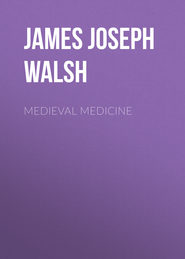По всем вопросам обращайтесь на: info@litportal.ru
(©) 2003-2024.
✖
Religion And Health
Автор
Год написания книги
2018
Настройки чтения
Размер шрифта
Высота строк
Поля
notes
1
"Agnosticism," Scribners, New York, 1895.
2
I owe this and a number of other quotations in this chapter to Tabrum "Religious Beliefs of Scientists," London, 1911.
3
Let nothing disturb thee,
Let nothing affright thee,
All things are passing,
God never changeth.
Who God possesseth
In nothing is wanting.
Alone God sufficeth.
(Longfellow translation.)
4
Dr. Karl Pearson, of London, the well-known authority on eugenics, has investigated rather carefully the health of children in large and small families, and has demonstrated that children are healthiest when there are five to eight children in the family. On the average, first and second children are not as healthy as those who come later in the family, and those who are in the best condition physically and mentally for life come after the fourth. The early children in the family are more liable to epilepsy and certain serious nervous diseases, and are often of unstable nervous equilibrium, while the later children are more gifted and are likely to live longer.
5
There are probably several hundred thousand men in this country who have to work on Sunday because the tobacco stores are open. This is an abuse corresponding to that with regard to the saloon, which will almost surely bring about a reaction in the public mind against the traffic in tobacco generally.
6
Methuen, London, 1911.
7
Black. 1920.
8
Appleton.
9
"Memories and Studies", New York, 1911.
10
Macmillan, New York, 1918.
11
Series 23, Vol. IV.
12
Series 11, Vol. II.
13
Popular Science Monthly, April, 1901.
14
D. Appleton & Co., New York, 1912.
15
McClure's Magazine, June, 1908.
16
Boston, 1914.
17
London, 1903.
18
The suggestion for this chapter came from Reverend William J. Lockington's little book on "Bodily Health and Spiritual Vigour", Longmans, Green and Co., London, New York, Bombay and Calcutta, 1914.











